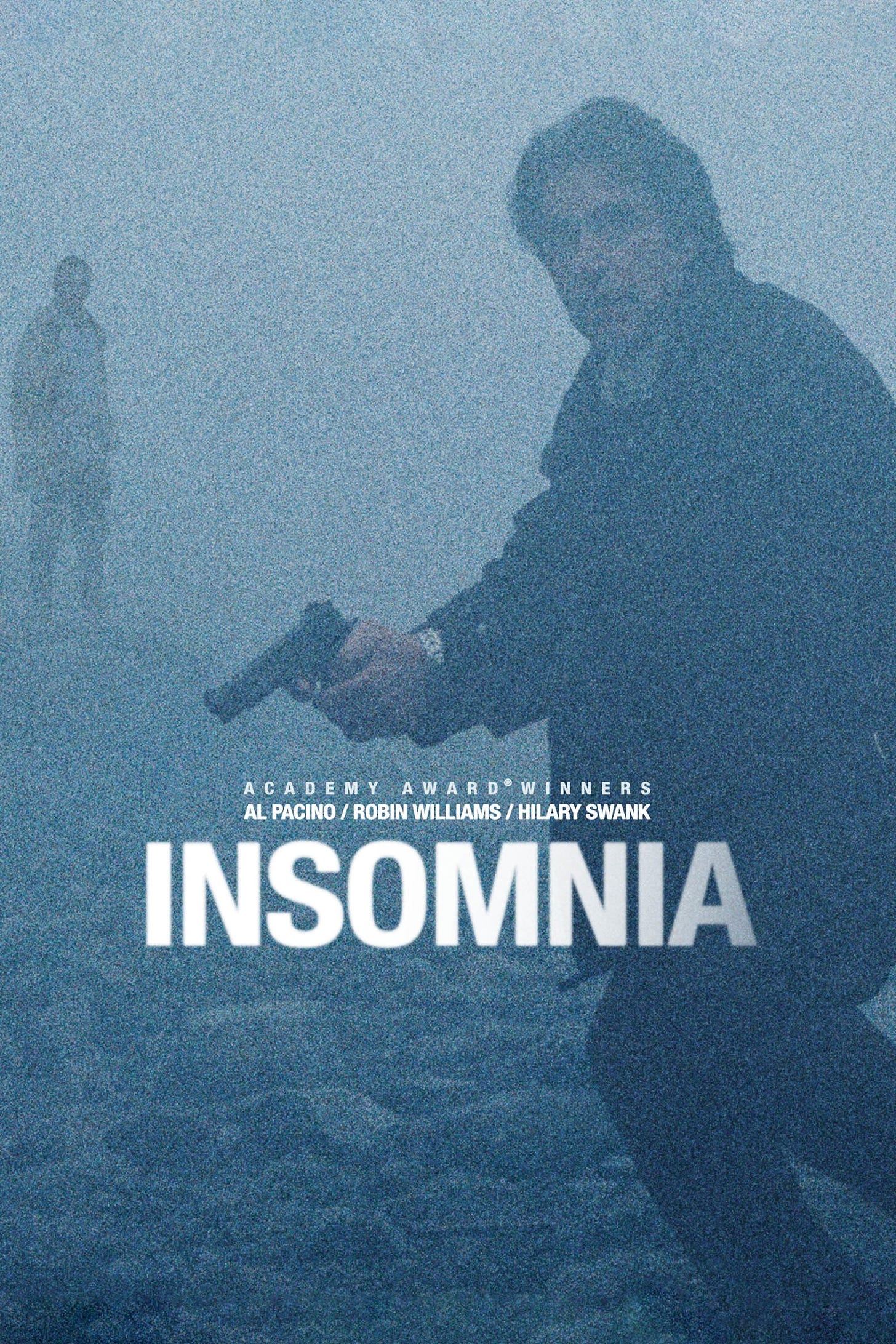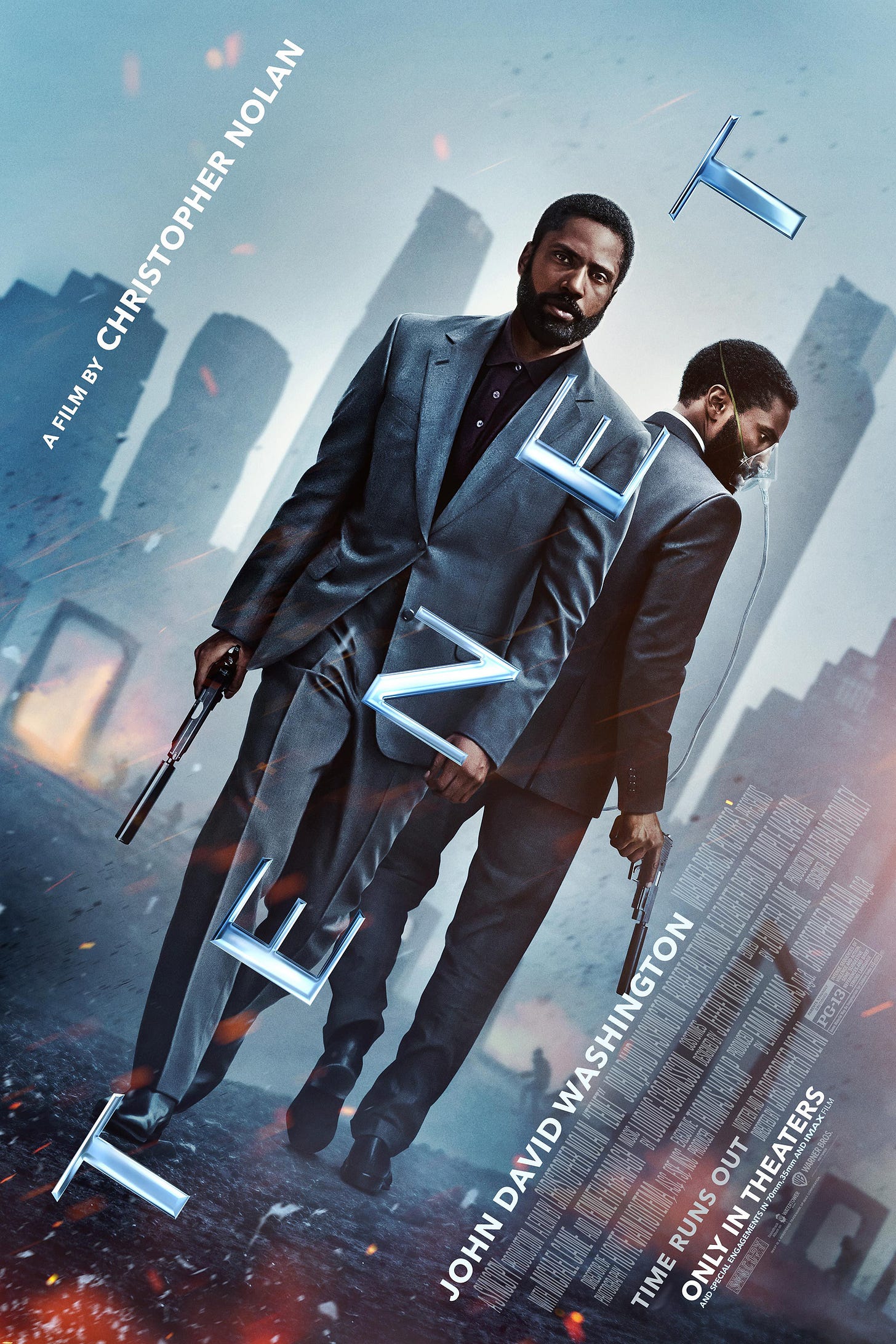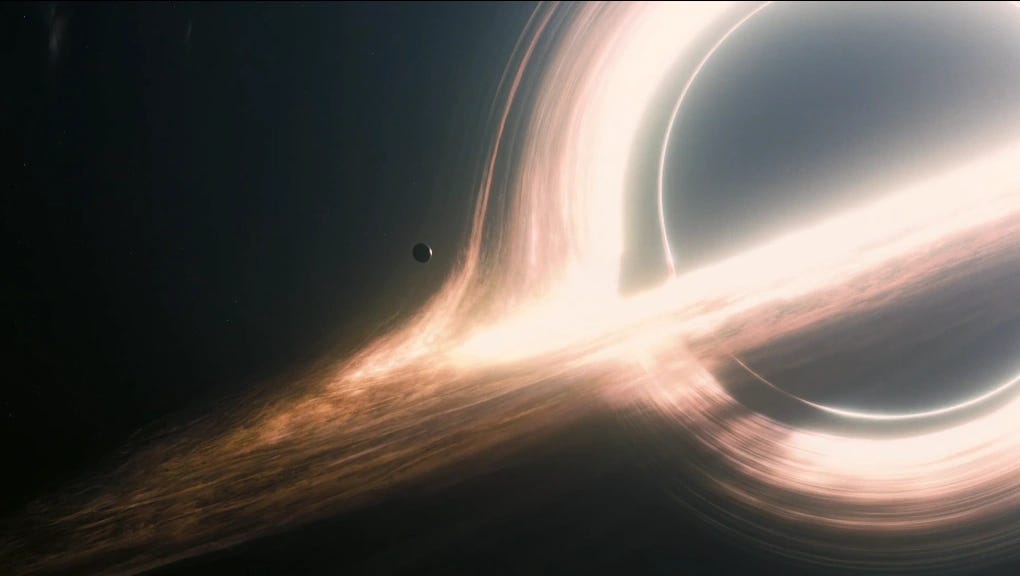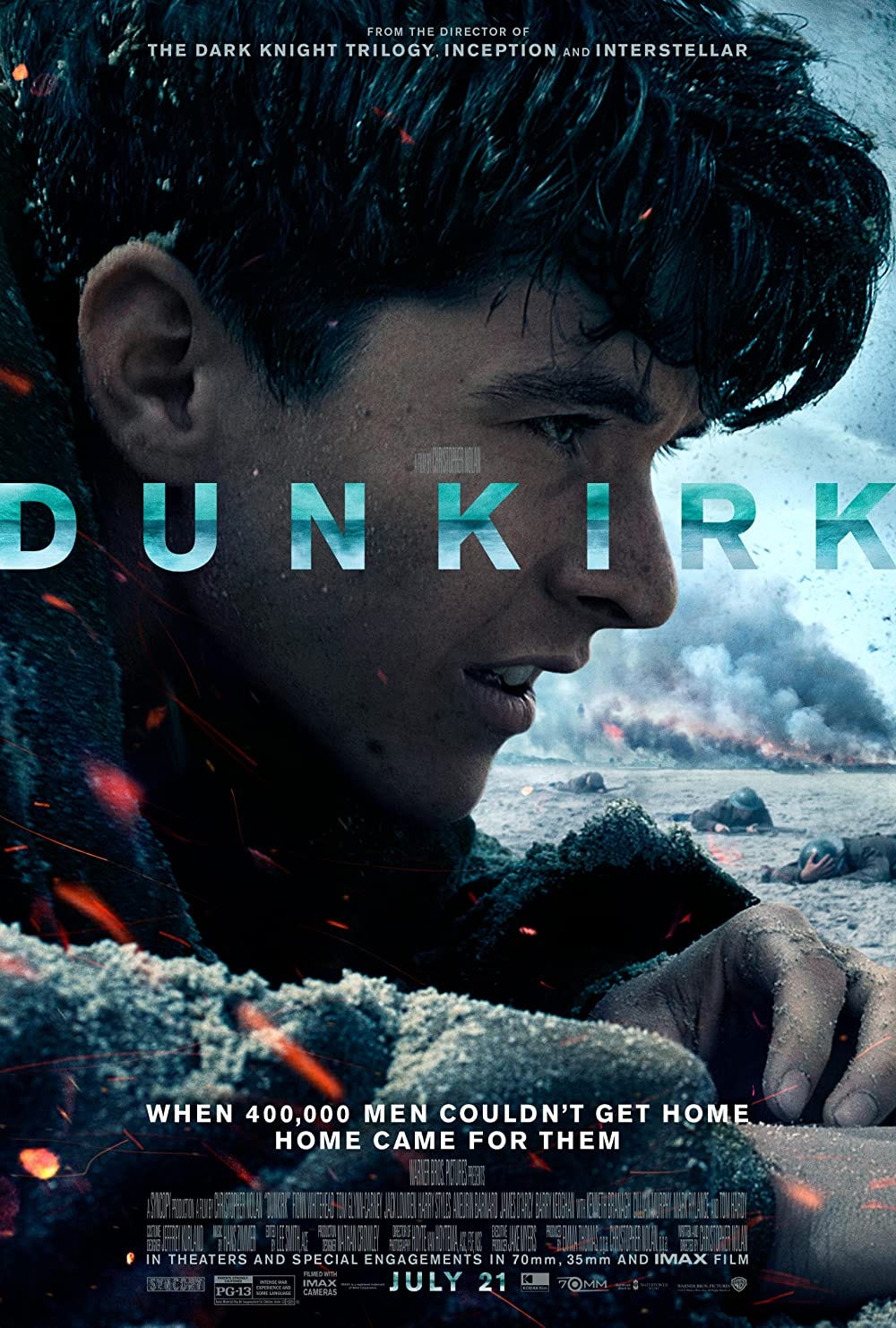Christopher Nolan Ranked Part 1
Our third Directors Ranked series takes us through the mind-bending and astonishing filmography of one Christopher Nolan.
Hello!
Usually these Directors Ranked series don’t do well in terms of views. But I don’t write these posts for views dammit!
Our third director is one of the bigger names in cinema today: Christopher Nolan (if the title didn’t give that away). His blockbusters always draw in big crowds to the theaters. I want to emphasize theaters because Nolan is a big believer in the cinematic experience. That’s why his films are usually praised for their technical brilliance.
Many want his films to succeed because of this. But at the same time, they are held to a higher standard and can get criticized for stupidly complex plots and underdeveloped characters. I guess I’ll be the judge of that even if this post goes way past the email length. And awaaay we go:
#11 Insomnia (2002)
C+
Al Pacino looks like an average moviegoer trying to understand an average Christopher Nolan film. It doesn’t help that the incredible actor is the lead as California detective Will Dormer solving murders in Alaska. Due to the long periods of sunlight and his obsession with catching the murderer, Will struggles to sleep and starts to go a little crazy.
Nolan does some interesting stuff when it comes to portraying Will’s increasing insomnia1. There are scenes where the detective does anything to try to get some sleep in his hotel room. Nolan manipulates the lighting and mise-en-scéne well and these tidbits offer some intrigue to the film. The lack of sleep causes Will to do horrific things, like accidentally killing his partner, Hap (Martin Donovan).
Despite this, Will isn’t that interesting of a character. He clearly has a checkered past and Pacino doesn’t play the morally dubious cop well. On top of that, Will’s new partner and local detective Ellie Burr (Hilary Swank) never really fascinated me. While Swank is good, the character itself isn’t all that complex. The only great performance was the antagonist, Walter Finch (Robin Williams). I absolutely love the fact that it is the late, great Robin Williams in the role of the psychopath. The creep factor definitely gets turned up to 11. Outside of him, though, the cast was weak.
I don’t think this because the overall cast are bad actors. Pacino is a legend and Swank is great in her own right. It just didn’t feel like the right fit for them. And that extends to Nolan himself.
Visually, Insomnia is definitely a Christopher Nolan film. The beautiful cinematography of Alaska clearly inspired the director in later movies like Batman Begins and Interstellar. But it doesn’t fully feel like his. This might be because he didn’t write the script. Hillary Seitz did. Seitz hasn’t written anything else memorable or good since her collaboration with Nolan. Say what you will about his exposition-heavy dialogue, Nolan still can deliver in his writing. Instead, we get a screenplay that isn’t that deep when it comes to talking about corruption and accountability.
Wait. Pause2. I’m just receiving word that it is an American remake of a Norwegian film. This makes much more sense. Time for some Norwegian subtitles!
#10 Tenet (2020)
B-
I know this might be a stale take, but Tenet is definitely the film where Nolan went so far up his own ass, he probably can’t see the light of the day. For haters of the British auteur, this film is the one that proves he is overrated. For Nolan’s most active supporters, Tenet is the film they can rally behind to show how much of a genius the director is. For me, this film is just kinda meh.
I still haven’t heard a good, reasonable argument for why the dialogue is nearly inaudible. Seriously, I’ve tried twice to actually hear what the characters are saying and I still can’t understand. While I think Ludwig Göransson’s score is well-done, the film turns the volume way too high. It seems silly to make it so loud when characters are explaining key plot points.
Speaking of the plot, the logic of time inversion is never really explained and the viewer is stuck wondering what is going on. Hell, even the actors had no clue at times. It's clear the CIA agent only known as “The Protagonist” (John David Washington) is trying to stop Russian oligarch Andrei Sator (Kenneth Branagh) from destroying time. But outside of that basic summary, the ideas the film tries to show fall on deaf ears. The thrilling, cross cutting sequences are undercut due to the overall confusion of the plot. The threatening stakes of time ending never even feels that viable.
It’s a shame because there are some truly great qualities3 about Tenet. Along with being a super unique and original idea for an action film, the action sequences are wildly entertaining. If you stop thinking about the story for a moment, you get amazing set pieces like when the Protagonist and Neil (Robert Pattinson) crash a plane during the airport heist or the reverse explosions in the final battle.
Nolan’s direction is top notch, especially in the opening scene at the opera. You can’t tell me you didn’t think that was thrilling. Just like you can’t tell me that this film is completely trash.
#9 Interstellar (2014)
B
If you ever find my Letterboxd account (henryobrien23 lol), you will see that I am not very kind to Nolan’s answer to 2001: A Space Odyssey. I didn’t enjoy the film on the first watch since I thought it was way too long for no reason and I felt Nolan was trying to be way too smart and profound. To me, Nolan’s sci-fi opera fell flat on its stupid face.
The more I have thought about it, though, the more I start to respect it even with some noticeable flaws. Credit to Nolan for going above and beyond by accurately showing space. Theoretical astrophysics4, most notably Neil deGrasse Tyson, generally gave their seal of approval of the film. But what’s incredible about it is how beautiful space realistically looks. And that’s one of the points Nolan tries to make.
The British director wants you to explore the wonder of infinite space. To find a way to break through dimensions and find new planets in order to solve seemingly insurmountable problems. With humanity on its last limbs, astronauts Cooper (Matthew McConaughey) and Amelia Brand (Anne Hathaway) embark on a journey through a wormhole to find a new home for humanity. The beauty of space is complimented by the extremely thrilling action, slick directing and godlike score of Hans Zimmer. When you look at the Gargantua black hole, you are in awe. It’s remarkable cinematography from our best DPs right, Hoyte van Hoytema.
While some grand space operas may have incredible, beautiful and detailed displays of space, sometimes the human characters can drag behind. Fortunately, both McConaughey and Hathaway reel in some of the best performances of their careers. They perfectly portray the cost and human toll of a journey like this. With time relativity as a factor, Cooper misses out on the life of his beloved daughter, Murph (Mackenzie Foy, Jessica Chastain, Ellen Burstyn). I mean, come on, try keeping it together when Cooper realizes his kids are as old as him and he hasn’t aged one bit.
Love between father and daughter is a key theme throughout Interstellar. And that’s its biggest problem. For a film so hyper-focused on scientific accuracy and the figurative cost of science, the film’s sharp left turn into love being quantifiable still makes little sense to me. I can stomach the third act more than most critics of the film. But what I can’t excuse is love being the reason Cooper solves all the Earth’s problems when the movie doesn’t back that up thematically. I end this critique with a question: If Interstellar is so focused on family’s love, why does Cooper essentially forget that he has a son, Tom (Timothée Chalamet, Casey Affleck)?
#8 The Dark Knight Rises (2012)
B+
Whether you think this is the low point of the Dark Knight trilogy or think this is one of the greatest movies ever made as IMDb5 indicates, this movie is certainly jam-packed.
You can’t say the film doesn’t have amazing sequences and setpieces. The opening of the film with the hijacked plane is arguably Nolan’s best action scenes. It sets up Tom Hardy’s brilliant performance as the new and improved Bane. The dialogue is great and we really see the true menace of one of the more iconic Batman villains.
But the pacing definitely starts to bog down the film. At some point, there are too many subplots and the introduction of John Blake (Joseph Gordon-Levitt) doesn’t really work for me6. Sure, Christian Bale, Nolan’s directing chops and great Wally Pfister cinematography elevate this picture above most superhero movies. Despite this, The Dark Knight Rises falters due to its attempt at political allegory.
The conclusion of The Dark Knight trilogy came out less than a year after the Occupy Wall Street Movement. Immediately after the release, many critics were quick to point out the themes of income inequality. Rogue’s Gallery legend and Batman love interest Catwoman (Anne Hathaway) critically pointed out Bruce Wayne’s status as a member of the 1%. She also talks about Bane’s so-called revolution as the reckoning for Gotham’s elite.
There’s even a scene where Bane pulls a heist at a stock exchange. Hardy’s character regularly pointed out the corruption in the city. He gives speeches to the people of Gotham about freeing themselves from this evil. But eventually, this only leads to prisoners running the city and the rich superhero Batman stops the supposed occupiers. Many commentators saw this as Nolan criticizing the Occupy Wall Street Movement. The film was even called “audaciously capitalist” by one critic.
Oh yeah, I forgot to mention. This was only the first two acts. The third act of the film, where Batman escapes the confinements of a Middle Eastern prison and stops Bane and Talia al Ghul (Marion Cotillard) from nuking Gotham, throws all that political buildup in the trash. And that’s the problem with the good-evil dichotomy of superhero movies. All the complexities, nuance and discussion of politics are really hard when it comes to action blockbusters like The Dark Knight trilogy. The film stops focusing on it and in my mind, all of these points become moot.
You could argue that this is Nolan’s attempt at cleverly adapting Charles Dickens’ novel “A Tale of Two Cities”. But like the political themes in the film, the attempt at an adaptation falls flat on its face7.
#7 Following (1998)
B+
Ah, the forgotten one. If I started a club called “Forgotten First Films From Well-Known Directors”, this would probably be the president of the club8. But like many great auteurs first features, Following sets up many of Nolan’s filmmaking habits. This includes messing around with linear storytelling, mysterious and stoic male leads and untrustworthy female counterparts.
Even early on, Nolan had a unique ability to draw us into his stories and character. I mean, we can somehow relate to a protagonist who is a stalker. The Young Man (Jeremy Theobald, yes that’s the only name we’re gonna get) will walk around London and casually follow people. It leads him into the criminal underworld where he gets used like a pawn. You can make a lot of comparisons between this and Nolan’s next film, Memento (don’t worry we’ll get to that soon).
The non-linear storytelling never really announces itself, which can confuse the audience a bit. But it still works for the most part at giving information and executing very solid plot twists. With the amount of deceit and mystery among all the characters, Following will keep you invested.
All in all, this feels like an above-average student film. That’s no dig against Nolan, he just didn’t have access to the resources he has now as one the highest-grossing working directors today. He didn’t have any professional lighting equipment and had to produce and edit the film along with directing. Hell, the black-and-white film is cheaper than color. But this offers a great insight into how Nolan, even without significant financial backing, could pump out a solid, mind-bending thriller. He used lighting in the film to add to the story and mystery. I definitely wouldn’t want to skip this if you’re looking for a Nolan deep dive.
#6 Dunkirk (2017)
B+
I had a bad first experience watching this film9. So despite all the hype going into it, I came out mildly disappointed in Nolan’s first crack at World War II (his second will be coming next year in Oppenheimer). But on the second time around, I really got a chance to actually appreciate what Nolan was trying to do. While it may be a British feel-good story, Nolan changes the dynamic by adding an extreme amount of suspense unseen since Saving Private Ryan.
The opening of the film is harrowing as young private Tommy Jensen (Fionn Whitehead) escapes from a Nazi barrage in the streets of the small French town. Immediately after he escapes to the beaches, there are bombings and it’s sheer luck that Tommy doesn’t get hit. Especially on the second watch, the tension was much more palpable. Composer Hans Zimmer adds to this by incorporating a ticking clock sound effect to help us subliminally and emotionally understand that there isn’t much time for these men to get off the shores of Dunkirk.
It’s not even the music that is pulse-pounding. I find the sound mixing and sound effects even more ear-piercing and terrifying. Getting era-accurate sound effects is no easy task. But the way the German planes sound makes them feel they are angels of death coming for the audience. Also, the bombs and explosions are so loud, we can somehow get some idea of what these brave soldiers went through.
The performances are restrained for the most part because of the circumstances. Aside from the storyline of Mr. Dawson (Mark Rylance), George (Barry Keoghan) and the shivering soldier (Cillian Murphy), we don’t get that much character backstory or development. Don’t get me wrong I love pilot Tom Hardy and soldier Harry Styles10, too. The film is more about survival and, as Mr. Dawson puts it, doing a job. I started to understand this the more I thought about the film. Again, this is also where I started to appreciate it much more.
While I still may question the reasoning by splitting in between the three stories constantly, I can now have great respect for it.
roll credits
A friend of mine texts this way. You know who you are.
At least from my perspective, the general commentary around Tenet has been around how the confusion of the film hurts the story. I definitely agree with this but that shouldn’t take away from the cool stuff I am about to mention
Interesting little tidbit: Caltech theoretical physicist and 2017 Nobel laureate in Physics Kip Thorne was the scientific advisor of the film and ended up writing a novel explaining the science in the movie. Of course, my dumb ass can’t understand any of it.
If you go to IMDb’s “Top 250 Movies” page, you will find The Dark Knight Rises at No. 70. Movies below this one include Inglorious Basterds, 2001: A Space Odyssey and Oldboy (2003). While that may not mean much to you, this ranking is a crime against humanity.
The reveal of his middle name being Robin was quite possibly one of the dumbest reveals to end a trilogy. Sorry, I just had to speak my truth.
There are other ways the larger themes of the trilogy fall flat like the idea of the “noble lie” established at the conclusion of The Dark Knight.
Fellow members of this club would include: Fear and Desire and Killer’s Kiss (Stanley Kubrick), Dark Star (John Carpenter) and THX 1138 (George Lucas). Maybe an honorary member would be PTA’s Hard Eight, but I think it’s popular enough.
So me and my dad went down to our local movie theater to watch it. But if there’s one thing about the O’Brien’s that remains true: we are usually late to stuff. And for a film made by Christopher Nolan, you’re in trouble immediately. We didn’t realize that the film was split into three separate until like 45 minutes into the viewing, so we were definitely thrown off. On an unrelated note, that’s the second time me and my dad showed up late to a Nolan film (first time being The Dark Knight Rises).
Yeah that’s right Harry Styles fans. I enjoyed him in Dunkirk.










